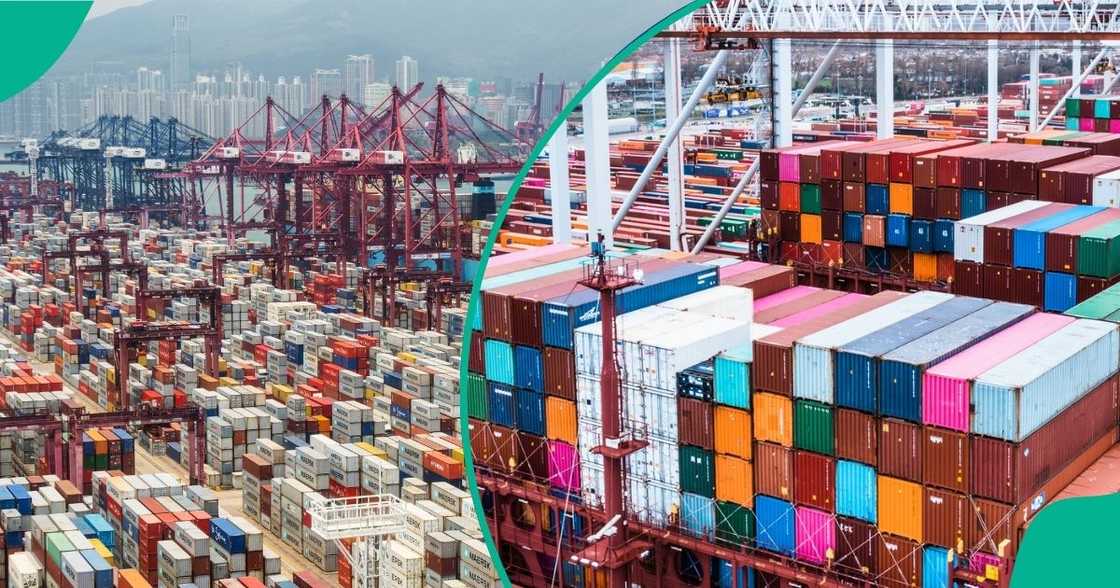Nigerian Manufacturers urge FG to make “Nigeria First” policy a law
- Nigerian manufacturers are calling on the federal government to support their businesses with the right kinds of policies
- They lamented that recent reforms from the government have made business difficult for them, leading to the closure of almost 800 manufacturing businesses in one year
- In the Nigerian manufacturing sector alone, over 18,000 jobs were lost in 2024, due to multiple business challenges and low purchasing power among Nigerians
Legit.ng journalist Ruth Okwumbu-Imafidon has over a decade of experience in business reporting across digital and mainstream media.
Nigerian manufacturers have called on the federal government to make a law prioritising locally-made products in budgetary allocations and procurements.
The manufacturers note that such a law would ensure implementation across all federal government ministries, departments, and agencies and would also extend to the private sector.
Speaking through their umbrella group, Manufacturers Association of Nigeria (MAN), they noted that the manufacturing business is already plagued with many challenges, including the high interest rates, and that having a unified policy to support the sector would be beneficial.

Source: Getty Images
Manufacturers urge FG to make a new law
The Nigeria-First policy was recently introduced by President Bola Tinubu to encourage support for local content in government contracts and procurements.
MAN Director-General, Segun Ajayi-Kadir, in his keynote address on Thursday at the 2025 BusinessDay Manufacturing Conference held in Lagos, commended the government for instituting the “Nigeria-First” policy.
He added that there was a need to gazette the Nigeria-First Procurement Policy and make it a law, the PUNCH reports.
He said:
“Make the Nigeria First Policy a binding law, and punitive measures should be put in place for violators. This is critical to give the policy legal standing, ensuring transparency, public awareness, and enforceability across government institutions and the private sector.”
He warned that if not given a formal legal framework, the policy could end up like past Executive Orders 003 and 005, which failed to have the desired impact despite the best intentions.
Ajayi-Kadir added that legislating the policy could transform Nigeria’s manufacturing sector, and stressed:
“If we fail to nurture our own, we will forever be at the mercy of others.”
Manufacturers urge FG to resolve teething challenges
The group lamented several challenges its members have faced since 2023, which led to about 767 manufacturers shutting down operations in 2023 and approximately 18,000 job losses in 2024.
The MAN DG listed other challenges, including rising operational costs, currency depreciation, infrastructural decay, and policy inconsistencies.
He also urged the government to adopt the 2024 Manufacturers Summit Report as a working document to create a national industrial policy that would drive the manufacturing sector in Nigeria.
Other issues raised include the resolution of the $2.4 billion in unsettled Foreign Exchange Forwards, and the fast-tracking of the Ajaokuta-Kaduna-Kano gas pipeline to inject 3.6 GW into the national grid and improve electricity supply to manufacturers.
The group also called for a reversal of the 15% increase in port charges by the Nigerian Ports Authority (NPA) and the removal of the 4% Free on Board (FOB) levy on exports.

Read also
Companies, Nigerians to adjust as Lagos announces date to begin full enforcement of SUPs ban
Manufacturers end up with N1.4 trillion unsold goods
In a previous report, Legit.ng stated that Nigerian manufacturers ended 2024 with large quantities of unsold goods amounting to over N1.4 trillion.

Source: Twitter
They complained that the economic situation in the country largely impacted their sales, leading to an increase in unsold inventories.
Manufacturers call for FG support as fuel expenses exceed N1 trillion
In related news, Nigerian manufacturers have called on the government to address power problems in the face of their rising energy costs.
Legit.ng reported that fuel expenses and other alternative energy sources cost Nigerian manufacturers over N1 trillion in 2024.
This was mostly triggered by the sharp increase in fuel prices following the deregulation of the downstream petroleum sector.
Source: Legit.ng




